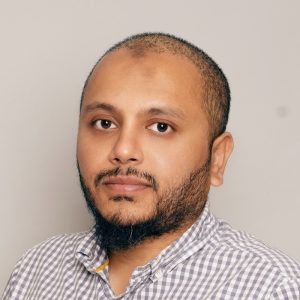Member Spotlight, May 2023
In each issue of Inside ASIS&T, we ask a different member questions about their perspectives, advice, and experiences in the field of information science and technology. If you would like to be a featured member, email Pamela Yonker at pyonker@asist.org.
 Sachi Arafat
Sachi Arafat
Assistant Professor of Data Science,
Faculty of Computing and Information Systems
King Abdulaziz University, Saudi Arabia
How long have you been an ASIS&T member?
11 1/2 years
Do you have any advice for new ASIS&T members?
ASIS&T covers diverse knowledge areas, and to really benefit from ASIS&T means to actively explore these various areas and not be limited to whichever such area may have initially drawn one in. A good way to do this is through real interactions with scholars through the various SIG events, many of which are online.
Who has inspired you in your career?
I not only have been inspired but continue to be so by the work and guidance of Keith van Rijsbergen and Micheal Buckland, who for me not only represent two complementary ends of the diverse map of knowledge areas that constitute IS, but also Snow’s two cultures which correspond quite precisely to these two ends: the way of the mathematical sciences and the way of humanities. It was through trying to connect between these ends, represented by the works of these scholars—e.g. pitting theories of meaning as related to theories of information (represented by Buckland) to rigorous mathematical and physical models (represented by van Rijsbergen)—that I found the inspiration to not only imagine a particular research direction, but a form of intellectual life that is meaningful beyond feeding into a particular career. More importantly perhaps, their guidance at key junctures of my career (van Rijsbergen as my doctoral advisor, Buckland during and after my postdoc period)—which in both cases guided-unto a form of unrestricted exploration—gave me the courage to undertake that very direction and intellectual life, something that was quite strongly against the current in terms of typical career pathways and dominant research trends within the CS and IS areas to which i am affiliated.
What skills and/or knowledge do you believe have been overemphasized or underemphasized for those in the field of informatio science?
Information science is broad and diverse, and rich in conceptual underpinnings and methodology. It behooves us to find real commonalities to this complex space, this means to dig deep, into foundations—that glue that binds the disparate parts of this space together. Foundations research needs much more emphasis, in a sustained and not only occasional sense, especially as the reach of AI forces us into deeper questions about the relation between man and technology. I think IS as a discipline and discourse does have a particular standpoint from which to view these questions and hence, something to contribute from within its disciplinary space. Further emphasis in the teaching and debate over foundations, would be the means to intellectually equip scholars to actually consistently make those contributions—as IS scholars.
Have you witnessed any noticeable shifts in the greater information science community?
ASIS&T is much more international than it was when i first came across it. This is not only a great social and professional benefit for members, but opens up IS as a discipline and discourse to an even wider range of perspectives that are native to the various cultures informing the new membership. It opens it up in that way, potentially, by allowing those diverse perspectives to speak without the standard ‘fear’ of not necessarily perfectly aligning to standard western approaches. It is not that this wan’t possible before, but that there seems to be far less of a psychological barrier to doing so.
